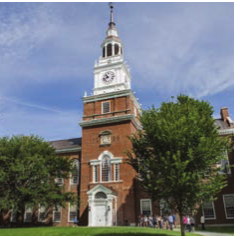CONCORD: State revenues for the new fiscal year did not meet expectations for July, falling short by more than $4 million. The Department of Administrative Services said state revenues produced $118.2 million, while budget writers predicted $122.4 million. Business profits tax revenues remained strong for the month, but business enterprise tax returns came in lower than expected. Among the other taxes, producing lower revenue was the real estate transfer tax, which produced $20.3 million, $1.9 million below estimates, and $3.7 million less than a year ago.

CONCORD: Gov. Chris Sununu has nominated a former top aide, D.J. Bettencourt, to head the NH Insurance Department. Bettencourt, who lives in Salem, has served as deputy commissioner since 2020. If confirmed, he would succeed Christopher Nicolopoulos of Bow, who resigned in July. Before joining the Insurance Department in 2020, Bettencourt was a policy director for the governor’s office and has also served in the Legislature. He resigned from his post as House majority leader in 2012 after falsifying records about coursework at the University of New Hampshire School of Law.
CONCORD: Gov. Chris Sununu has given the state Board of Mental Health Practice until the end of the month to activate more conditional licenses for mental health workers, who are needed to respond to a chronic shortage. If the 10-person board cannot meet the demand, Sununu said he would use a state law that would allow him to seek the “removal of public officials for cause.”
It has been two years since Sununu signed a law easing requirements for a conditional license in more than a half-dozen mental health professions ranging from social workers and marriage and family therapists to mental health workers.
CANAAN: The state Charitable Trusts Unit issued a report last month that greenlights a path forward for the Mascoma Community Health Center to stabilize its finances by merging with HealthFirst Family Care Center, a federally qualified health center that also has locations in Franklin and Laconia. Under the proposal, Mascoma would retain ownership of its 14,000-square-foot building, and HealthFirst would pay rent for the use of the space. Mascoma would use the rental income of about $26,000 a month to start to maintain the building and pay down a loan it received from the U.S. Department of Agriculture. HealthFirst would manage day-to-day operations, and Mascoma patients would have representation on HealthFirst’s board. Audrey Goudie, director of marketing and communications for HealthFirst, said in an email, the hope is for the merge to be completed by Oct. 1.

HANOVER: A new study finds students from the wealthiest families are far more likely to attend Ivy League schools, including Dartmouth College, than less affluent peers. The study by Opportunity Insights found that students from families in the top 1 percent of earners — those earning more than $611,000 a year — were more than twice as likely to attend Dartmouth compared to other students with the same test scores. The study found the admissions edge grew even more pronounced at the highest income levels: Students in the top 0.1 percent of earners were 4.4 times as likely to attend.
AUSTIN, TEXAS: New Hampshire is the 10th most expensive state in the U.S. to own a home, and the top-ranked for increasing expenses, according to an analysis by real estate industry website Agent Advice. Prices in the 10 most expensive states in the U.S. ranked by the analysis skyrocketed between March 2021 and March 2023, but the Granite State was only one of three in which prices went up, not down, between March 2022 and this year, according to the Texas-based site. Of the three states in which home prices continued to rise after March 2022, New Hampshire’s increase was the greatest.
CONCORD: With the selection of PC Construction as general contractor, plans to build a new forensic psychiatric facility next to New Hampshire Hospital in Concord are moving forward. The facility will serve patients involved in the criminal justice system with serious mental illness, who are unable to stand trial or found not guilty because of their illness, or who cannot safely be treated at New Hampshire Hospital. The state is planning to start with 24 beds, but Department of Health and Human Services officials said they will be prepared to add more, based on need.